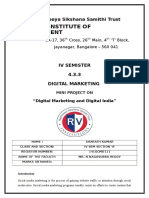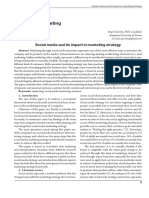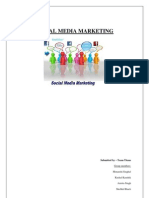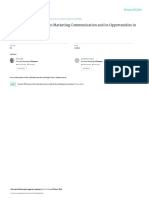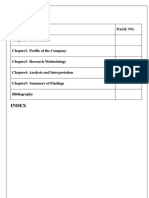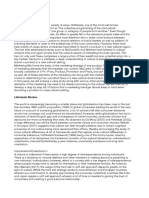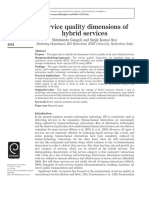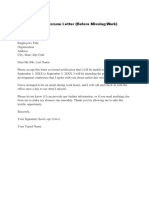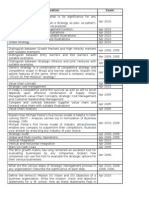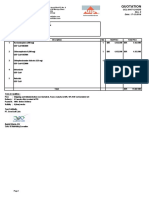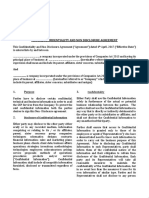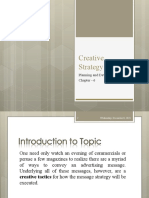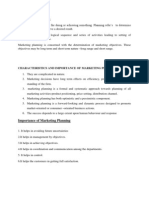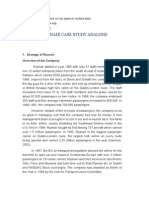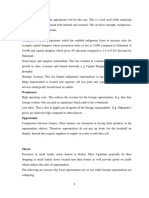In the digital age, social media has revolutionized the way businesses and organizations communicate with their
customers. With over 4.7 billion users worldwide, platforms like Facebook, Instagram, Twitter, and TikTok have
become powerful tools for marketers to launch campaigns that drive brand awareness, customer engagement, and
ultimately, business growth. The marketing campaigns on social media are now considered as an essential part of
any comprehensive marketing strategy, providing an unprecedented opportunity for real-time interaction and
personalized communication with consumers.
The increase of social media has shifted the dynamics of traditional marketing, giving brands the ability to directly
reach global audiences while fostering participation and content co-creation. Marketing campaigns on these
platforms utilize various strategies, including targeted advertising, user-generated content, and influencer
partnerships, to achieve specific goals. Despite the growing importance of social media in the marketing,
understanding how to effectively harness these platforms for successful campaigns remains a complex challenge for
businesses.
This literature review aims to explore the existing research on social media of marketing campaigns, focusing on
their definitions, the different roles, and the best practices for businesses to maximize their impact through three
research questions relying on the current papers. The first question is “What is social media?How is campaings
defined?”. The second question is ”What is the role of online platforms on the marketing campains?”. And the last
question is “How business can effectively use social media?”. By reviewing the works of key scholars and industry
experts, this paper will provide an in-depth analysis of how social media platforms shape marketing strategies and
highlight the current gaps in research that can guide future studies.
According to Kaplan and Haenlein (Haelein, 2010), social media can be described as a collection of internet-based
platforms that stem from the ideological and technological foundations of Web 2.0. These platforms are designed to
facilitate the creation and exchange of user-generated content (UGC), making them key elements in modern digital
communication. However, a other study of (Russo, 2008)supposed that social media was defined as “ those that
facilitate online communication, networking, and/or collaboration. Social software, social networking and Web
2.0 are other terms used to describe tools and platforms that enable similar user interaction.” Besides, (Lewis,
2010) noted “social media as the current label for digital technologies that allow people to connect, interact,
produce and share content.” All these definitions emphasize the role as a space for collaboration, communication,
and content sharing, which is crucial for marketing campagins but they are still relatively simple which only focus
on constructing messages on social platforms.
Campaigns on social media platforms, as defined by Dokhanchi (2020), encompass a broad range of social
objectives pursued by various entities, including individuals, charities, NGOs, governments, and corporations. These
campaigns frequently utilize tools like hashtags to engage users and foster participation. Additionally, according to
(Cheng, 2003) in “Planing for marketing compaigns”, this term can be considered “as a process of planning in
which the objective is to convert groups of customers from one class to another, more profitable class.” However,
whether defined in the smallest or most general aspect, these definition highlight the positive impact received from
this plan.
Social media’s reach and ubiquity have made it an integral part of the modern marketing ecosystem. According to
the study “Social media and its role in marketing” (Sajid, 2016), marketing promotion on social platforms as “ a
strategic and methodical process to establish the company’s impact, reputation and item within areas of potential
clients, visitors or supporters.” One major segment of Web 2.0 marketing is the use of online social networks,
commonly referred to as Social Media Marketing. Social networks are online platforms where people gather and
form relationships within a virtual space ( O ’ Connor et al, 2011 ). Social media marketing seeks to engage
customers with the place / organization, using social network websites (Evans, 2010). Both two researchers gave the
role of social media on marketing but they are quite vague. Therefore , understanding these role is a little bit difficult
for all, especially people who don’t find out as professor in this fields.
Having been given at introduction part, looking for the ways which business use social platform to reach their target
effectively is essential. More and more businesses gain a lot of advantages from marketing on social platforms. For
example, in the “Social Media Marketing: Measuring Its Effectiveness and Identifying the Target Market”
�demonstrated that through some evidences such as “Dessert Gallery has increased visits by 20% per month after its
Facebook fans jumped from 283 to 817 (Woessner, 2011). In addition, a Facebook page with a portfolio of pictures
has helped a wedding photographer from Michigan, Aaron Deckrow, get new customers (Yankee, 2009). According
to Gary Vaynerchuk, who is the author of The Thank You Economy, social media sites allow companies to enhance
the customer interaction that has already been established through traditional media (i.e. TV ads, print ads) to a
more personal level. In addition, social media sites have enabled businesses to build closer relationships with their
customers, as well as to expand the market to the customers that they could not reach before (Rooney, 2011).”
(Agwu, 2024) Although the author has provided evidence for the effectiveness of businesses' approaches to
marketing on social network platforms, the author has not specifically generalized those approaches into methods
such as theorems to apply for the new businesses.
This literature review synthesizes key concepts around the impact and role of social media in marketing campaigns,
while also addressing how businesses can capitalize on these platforms to enhance their marketing efforts.
References
Agwu, E. (2024, 9 24). Effectiveness of Social Media Networks as a Strategic Tool for Organizational
Marketing Management. Retrieved from https://papers.ssrn.com/sol3/papers.cfm?
abstract_id=3122422
Cheng, Q. Y. (2003). Planning for marketing compaigns.
Evans. (2010). Social Media Marketing: The Next Generation of Business Engagement. wiley.
Haelein, K. a. (2010). Users of the World, Unite! The Challenges and Opportunities of Social Media.
Business horizons.
Lewis. (2010). Social Media and Strategic Communication: Attitudes and Perceptions among College
Students. Public relations journal.
Russo, W. K. (2008). Participatory Communication with Social Media. curator the museum journal.
Sajid. (2016). Social Media and Its Role in Marketing. Business and Economics.

















